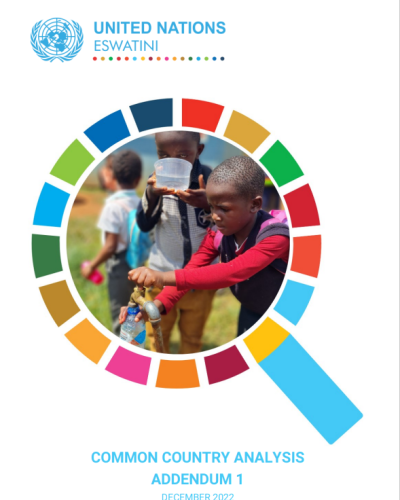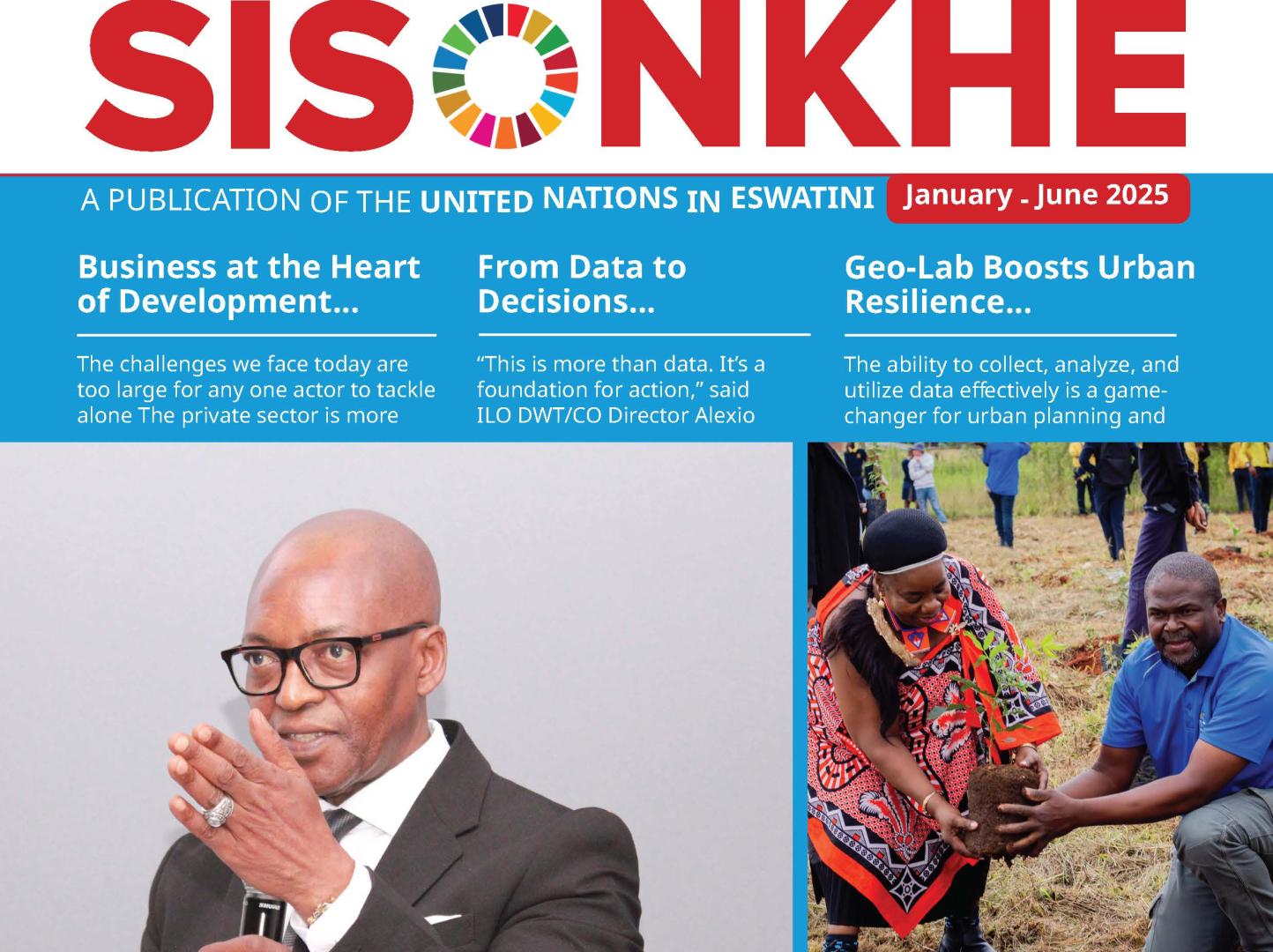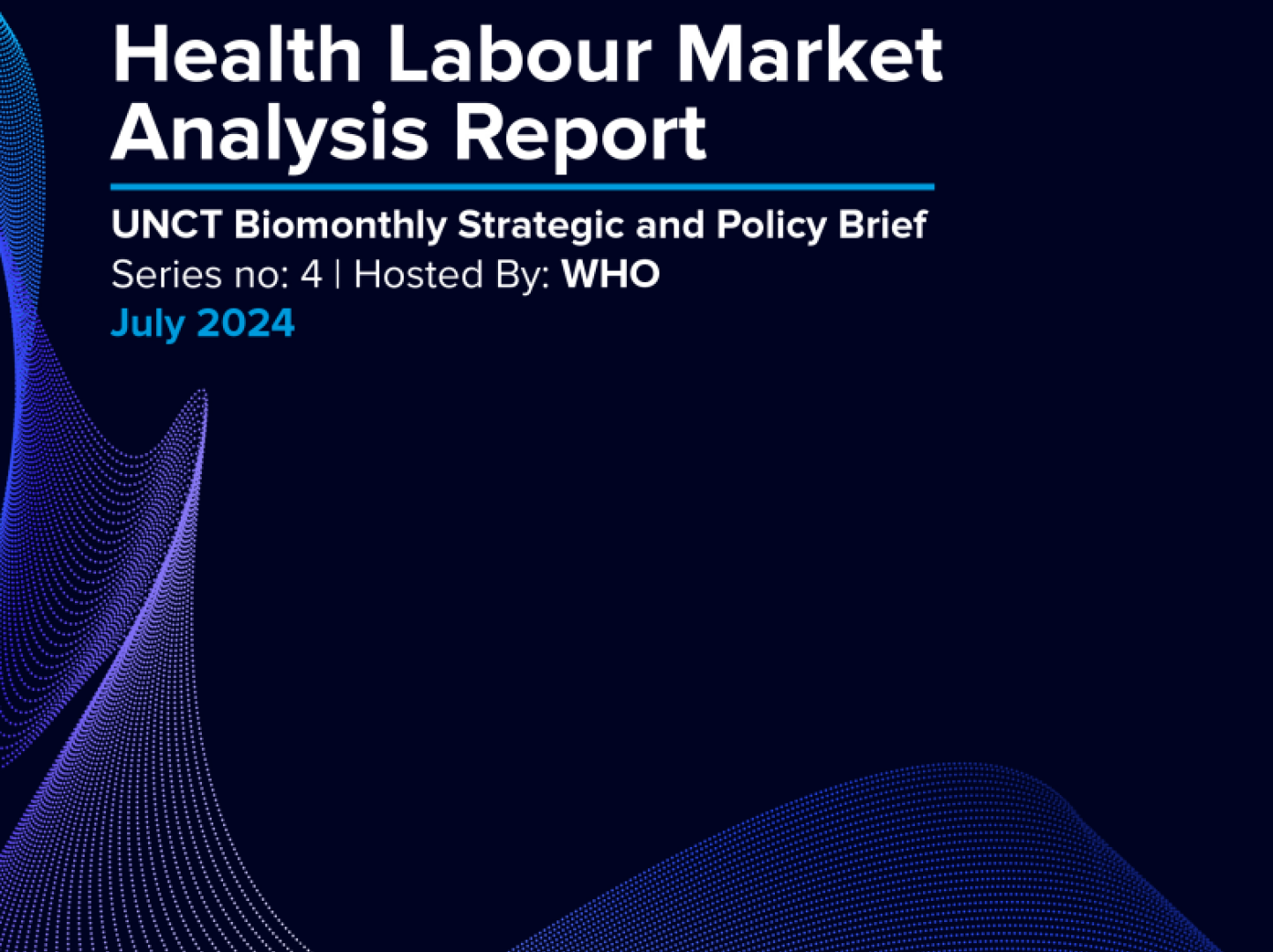COMMON COUNTRY ANALYSIS ADDENDUM

In April 2020, the UN Country Team (UNCT) finalized the Kingdom of Eswatini Common Country Analysis (CCA), which provided a contextual analysis and set the basis for the formulation of the United Nations Sustainable Development Cooperation Framework (2021-2025) for Eswatini.
The CCA Update 2022 (Addendum) is a regular annual update of the CCA, undertaken by the UNCT to take note of the potential contextual changes that could be considered within the implementation of the UNSDCF 2021-2025.
The Addendum has five sections. Section 1 is an introduction, summarizing the country’s context; reflecting on 2020 Baseline CCA, and presenting the process of the CCA Update 2022.
Section 2 presents the key development since the baseline CCA, including update on Eswatini’s performance on SDGs; the status of governance, rule of law and human rights; the socio-economic impact of COVID-19 and other events since 2020; and development in the area of climate change, environment and natural resources. The section also summarizes the updated financing landscape analysis. In progress on SDGs: The update indicates that Eswatini’s progress towards the 2030 Agenda and SDGs continue to be average.
According to the Sustainable Development Report 2022, Eswatini had a score of 54.6 (out of 100) on progress made on the achievement of SDGs. The main reason for the slow pace of achieving national development goals and SDGs is the country’s recently experienced major shocks among which were climate related (Cyclone Eloise), health and economic related (COVID-19 pandemic) and, the unprecedented civil unrest during 2021. The shocks have had devastating effect on the economy and livelihoods. In the area of governance, rule of law and human rights, the update captures the unprecedented and prolonged civil unrest that began in May 2021, with calls for political reforms, an end to police brutality, and for delivery of basic services to citizens. Expressions of public frustration led to use of excessive force by security forces, deaths and injuries and destruction of property, abuse of human rights, dignity and freedom of expression.
The human rights situation in Eswatini has remained volatile since the civil unrest in 2021, characterized by consistent demands for change, the release of the two MPs accused of supporting pro-change agitations, sporadic protests characterized by organised demonstrations on salary increments by police, nurses; increased harassment and violence against pro-change groups including dawn and night raids by security officers. The emergence of violent extremism in mid-2022, with an armed group targeting and killing security forces (including members of the military, police and correction services) and burning government and private properties and targeting other business investments is a dangerous development in the country.
Currently the situation in Eswatini is tense, volatile and fluid, threatening peace and security, as well as investment, economic growth, social transformation and cohesion. The trajectory towards national development goals and SDGs is under threat. Socio-economic development update, The COVID[1]19 pandemic exacerbated an already difficult socio[1]economic situation in Eswatini with slow economic growth in previous years and fiscal challenges, such as falling SACU revenues and high wage bill. Eswatini’s Real GDP growth was projected to grow to 1.1 percent in 2022.
Overall, on a per capita basis, GDP declined to the lowest levels in 5 years, reaching USD 3,415.4 impacted by COVID-19, climate change, poor governance, civil unrest and limited capacity in both the public and private sectors. Economic activity is expected to accelerate in the medium term and average 4.1 percent between 2023 to 2025. The main sources of growth are earmarked to emanate from increased government investment in productive sectors, including implementation of the Lower Usuthu Smallholder Irrigation Project (LUSIP) II as well as the commencement of the multi-billion SZL Mkhondvo – Ngwavuma Water Augmented Program (MNWAP).




















